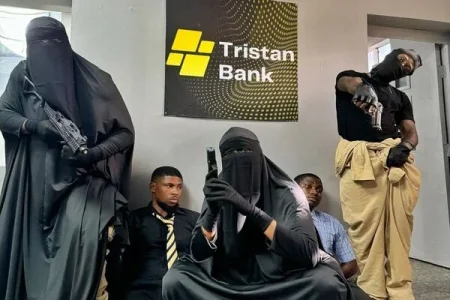
MURIC has called for a ban on a film featuring Nancy Isime, alleging it depicts Muslim women in niqab as criminals. The group denounces the film as inflammatory and Islamophobic, urging the National Film and Video Censors Board to act. Reactions on social media are mixed, with some criticizing the portrayal and others defending artistic freedom.
The Muslim Rights Concern (MURIC) has called for an immediate ban on an upcoming film featuring actress Nancy Isime, citing its portrayal of Muslim women in niqab as “satanic” and inflammatory. The film, which has sparked controversy, depicts women in full Islamic attire wielding weapons and participating in bank robberies. MURIC argues that the film promotes Islamophobia by depicting Muslim women as violent criminals and may incite public animosity towards them.
In a statement issued by Professor Ishaq Akintola, MURIC’s Executive Director, the film is denounced as an attempt to tarnish the image of Muslim women and disrupt the acceptance of hijab and niqab in society. Akintola expressed deep concern that the film could exacerbate tensions and lead to further stigmatization of Muslims. He called upon the National Film and Video Censors Board to take swift action to prevent the film's release, emphasizing that it represents a broader, malicious agenda against Islamic practices.
Social media reactions reflect a mix of outrage and skepticism. Latifat Adewunmi Jumah criticized the film's use of hijab and niqab as disguises for criminal activity, arguing that such portrayals are offensive and misleading. Another commenter, Alfa Shehu, accused the film’s creators of hypocrisy and exploitation for profit, suggesting that the portrayal of Muslim women in this manner only serves to reinforce negative stereotypes.
Despite the backlash, some social media users argue that concerns over the film might be overblown, citing freedom of expression and artistic license. However, MURIC remains resolute, urging calm among Nigerian Muslims while calling for official intervention to address what they perceive as a serious affront to their faith.


![[VIDEO] Darey Art Alade Unveils Plan to Export Nigeria's Detty December Festival](/data/attachments/226/226352-c9707d22a1779ce424b22189b5d76a8a.jpg?hash=xpXZQ8BPie)

